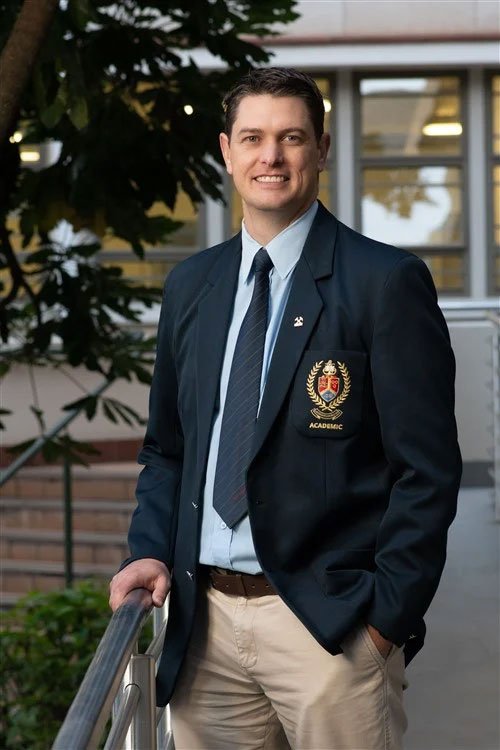Q&A with Jannie Maritz
NAME
Jannie Maritz
TITLE
Senior Lecturer at University of Pretoria
QUALIFICATIONS
BEng (Mining Engineering), BEng (Hons) Management of Technology, MEng (Mining Engineering), Mine Managers Certificate, Rock Engineering Certificate
Senior Lecturer Jannie Maritz from the University of Pretoria, South Africa shares the technological advances that are exciting him the most and his career advice for people looking to work as a geotechnical professional in mining.
What motivates you to get out of bed in the morning?
Even though I am in the education industry full-time, I am still an Engineer first and an engineers’ purpose is to solve problems. At the start of each new day, I take a register of all the problems that need solving for that day in which I can play a role. Whether it is to solve the knowledge gap of upcoming mining engineers, solving integrated mining problems, solving stability issues on operations or fixing a dripping tap on my property, that is my motivation for getting up.
Why did you choose your current career and how did you get to your current position?
As a graduate switching from production to the technical field which was driven by the tedious repetition of marking blast holes and charging it with explosives just to do the same tomorrow, just 1 meter further. At a student Alumni meeting, I noticed the profile picture for the Rock Engineering Lecturer was blank and thought it to be a good challenge and to contribute to the next generation based on my experience in production, technical support services, consultancy and management.
What moment of your life would you want to relive – and would you change anything?
The time I met my wife. Would I change it, YES – would have done it a week earlier.
How do you think technology is changing the practice of geotechnics in mining?
A mine is nothing less than a complex factory which produces broken rock as raw material for the metallurgical plant to produce a product to sell. The miners commodity is rock - safe rock. Everyone is talking about the mine of the future. In my view, technology impacts the mining industry in:
Having one “remote” control room
Removing people from the production areas
Creating continuous excavating machines
Early removal of waste and Pre-Concentration
Establishing an advanced orebody model in mineralogy and structural control
Higher quality final product.
From the geotechnic department, technology contributes to the single control room with all data gathered available for use by others and the resource characterizations (5) clusters.
What is one thing you would like to change about the mining and geotechnics industry?
Resistance to change. I appreciate the fact that we work in an unforgiving environment littered with high-risk elements around every corner. Just because we mined like that for the past 20 years does not mean we need to do so for the next 30.
What areas of the industry or trends do you think will become more important in coming years?
A huge untapped area is the amount of data the industry generates. These days we have smart-everything, that could collect data for every activity, from how many tonnes are on the bucket, to how many times a minute the cleaners move the broomsticks. The picture generally gets lost in piles and piles of spreadsheets on the planners desktop, which never gets to be analysed. Changing the data to information. If we can get to revisit the “picture” the data paints, we might reveal new problems, and then, we are back at what we do best: SOLVE PROBLEMS
Are there any technology advances happening that you are excited about?
The first is “Extended Reality”. Immersive technologies allow the hidden world of data to come to life. Being able to “see” into the rock mass allows first the geotechnical engineer the ability to make better decisions towards stability and secondly to show production personnel the ability the experience Geotech has obtained thru the years listening to the rock to understand the rock response. These can include Virtual Reality (VR), Augmented Reality (AR) or Mixed Reality (MR). With the drive towards digital transformation, data is the driver for the technologies to come to the front. Where VR has reach a high level of maturity within training centres, application and adoption of AR and MR are the next big thing.
The second advancement I am excited about is “Digital Twin”. Once we make the transition from Digital Copy to Digital Twin, real-time optimization can become a reality. As optimisation is the art of reducing delays, reducing the time in which decisions are made can also optimise your operation.
Wouldn’t it be nice if we all can put on Ironman’s suit?
Do you think technology can change the industry for better – or is it a distraction?
Yes, I do. If we can stick to Steve Job’s requirement: “if I can do it in one click or less”.
What is the best advice you have ever been given?
Just as I started my career, my supervisor called me in to give me a speech on how the mining industry works. His words echo in my ears daily – “There is no Satisfaction in Comparison!”
What advice would you give to someone considering geotechnical engineering as a career?
All living things like to tell their story. Rock is nothing different. If you care enough, you will sit and listen attentively before making a decision. But make that decision, manage your decision and when you see the outcome isn’t to the liking of the better cause, make a new one. All this said, when you are in doubt, just do the next calculation.

